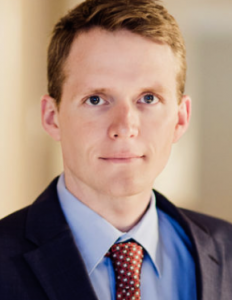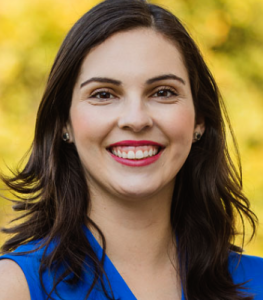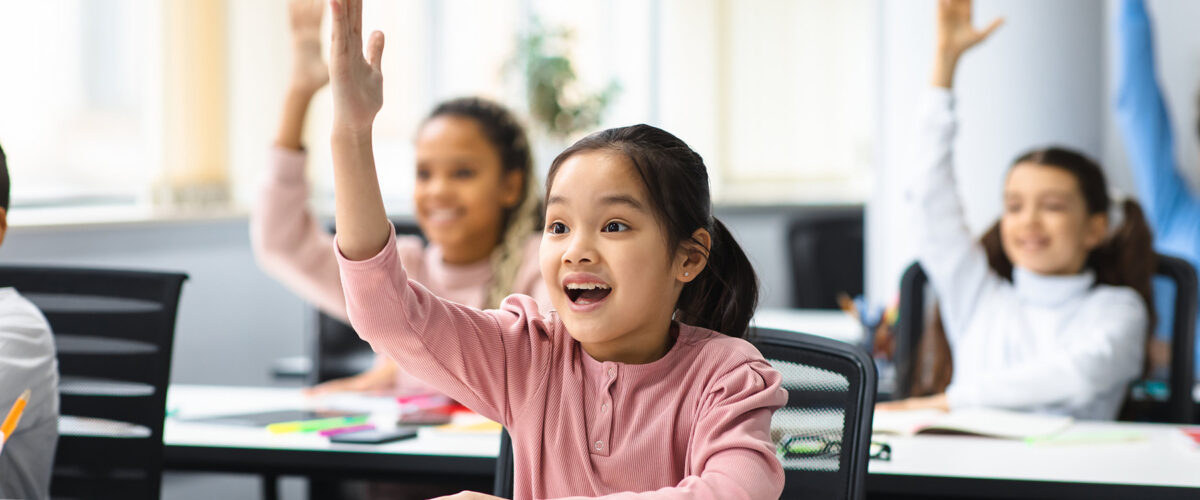Education advocates working to save public schools need the backing of people of faith to support and expand those efforts, Baptist minister and political strategist Matthew Hall said during a Feb. 20 webinar hosted by Fellowship Southwest.
“Civic witness is so critical at this moment. This is a vital ministry field, not just with public education, but on voting and other issues that intersect with our democracy,” said Hall, director of political strategy and partnerships with Raise Your Hand Texas, an advocacy group that supports policies that encourage students and teachers and to improve workforce and college readiness.

Matthew Hall
Hall and colleague Sophie Torres were invited to address the challenges facing public education in Texas and to suggest how Christians active in social justice causes might support schools heading into this month’s Texas primary election.
“I get this question all the time — what more can I do? How can I make a difference?” said moderator Cameron Mason Vickrey, director of communications and development for Fellowship Southwest.
It’s crucial that congregations and individuals advocate for Texas schools at a time when there are so many voices — including Christian voices — trying to undermine public education, she said. “There is polarization, especially since COVID. Masks were divisive, then CRT, library books and now chaplains as counselors, which is such a ridiculous suggestion.”
Last year’s debate over education vouchers generated intensely disparaging rhetoric toward public schools before the measure died in the Texas House. “All these things are casting doubt in a regular parent’s eyes,” said Vickrey, who is the mother of school-age children.
Education advocates are working to ensure the public understands the challenges facing the state’s school districts, teachers and students, said Torres, regional advocacy director for greater San Antonio and the Coastal Bend with Raise Your Hand Texas.
“Public school systems make our society and democracy stronger.”
But they also need help because the stakes are high, she added. “It is our responsibility to shepherd public schools and their students into the future. Public school systems make our society and democracy stronger.”
Vickrey asked Torres, Hall and webinar attendees to identify what they consider the biggest problem facing public education.
In the chat, viewers replied that money, Christian nationalism, anti-schools politicking, political polarization and the threat of voucher bills were among the biggest challenges.

Sophie Torres
“A common theme I’m seeing here is an understanding that our public schools are under-resourced, whether by intention through the legislature or whatever the intention may be,” Hall said.
It’s a frustrating situation given that Texas ended 2023 with a budget surplus of more than $30 billion, he explained. “For background, that is larger than the entire state budget of the state of Alabama.”
Meanwhile, Texas ranks 42nd in per-pupil spending, leaving its districts unable to properly maintain facilities or to hire and retain qualified teachers to meet growing demand, Hall said. “We have districts statewide — whether you’re talking about Keller, Klein, Plano or Pecos — that are in a position where they are unable to hire to meet need. And it’s a systemic challenge.”
The under-resourcing of public schools is especially astonishing given the immensity of the system and its national influence, Torres said. “There are 5.4 million public school students in the state of Texas. That is 20% of national public-school students in the United States.”
Vickrey also asked participants to name the biggest benefit public schools offer.
“It’s one of our fundamental rights and it’s part of our democracy,” Torres said. “And it is open to everyone who comes through the door, and that is really inspiring.”
Hall added: “It’s a community anchor. It helps build a sense of togetherness, of community identity. It’s part of our civil society and social cohesion that builds a sense of togetherness within neighborhoods.”
An important contribution of public education is its contributions to the U.S. workforce, he said. “It’s the public school system that provides the vast majority of our college and career readiness resources, rather than the private or parochial system.”

Cameron Vickrey
Vickrey asked: But what about critics who claim the proponents of public education are never satisfied with the funding schools receive from the state?
“It’s infuriating, sure,” said Torres, adding she responds to the attitude by comparing the rise in consumer prices to those faced by schools. “One thing a lot of legislators seem to forget is that not only are our costs going up, but so are everyone else’s. And for school districts, the legislature controls what amount they get.”
It’s also difficult to hear when people label public schools as “bad,” she said. “But they are not bad schools. They just have insufficient resources.”
Christians have an important role to play in chipping away at the negative attitudes toward schools and in how they are financed, Hall said. He urged people of faith to actively support their local schools and to call, write or even visit legislators and their staffs about public education issues.
Their presence and concern can humanize the needs of schools, their teachers and students, he said. “There’s a unique power that communities of faith have in taking that ‘them’ and remaking it into an ‘us.’”
Torres said churches and individuals also can help schools by posting voting information on social media and by making friends and neighbors aware of early voting dates and polling locations.
“We do all these things to encourage our networks about the importance of voting because this impacts our kids and our public schools and teachers. Will our schools continue to have a lack of funding? Or will there be the political will to change those things?”


